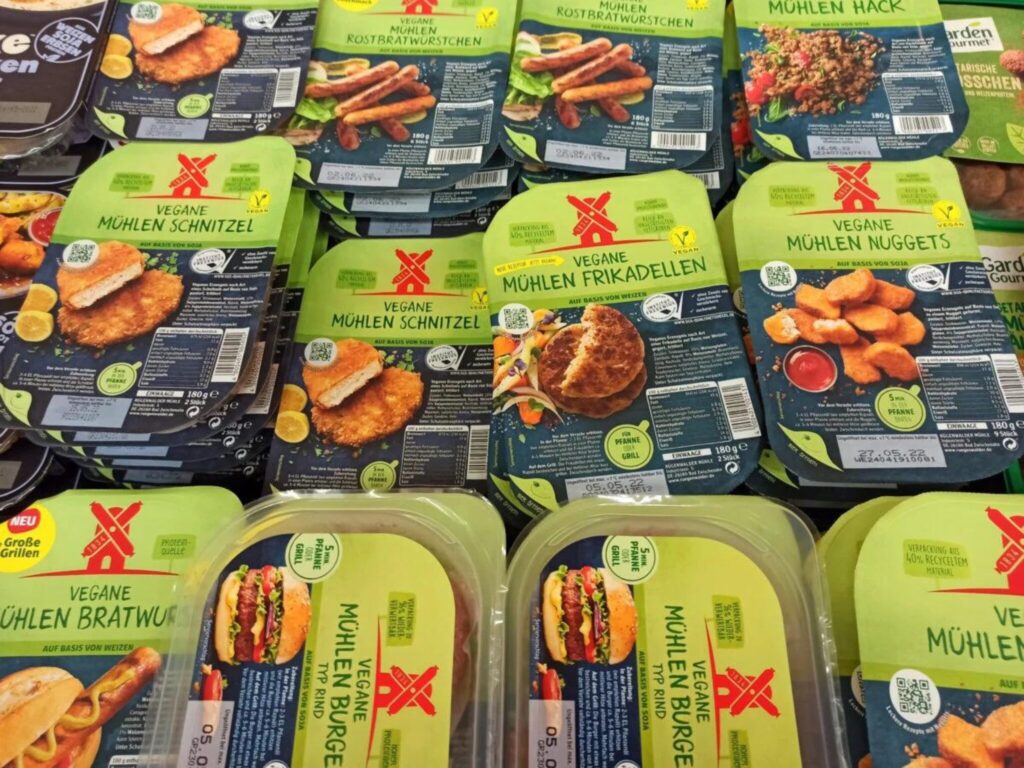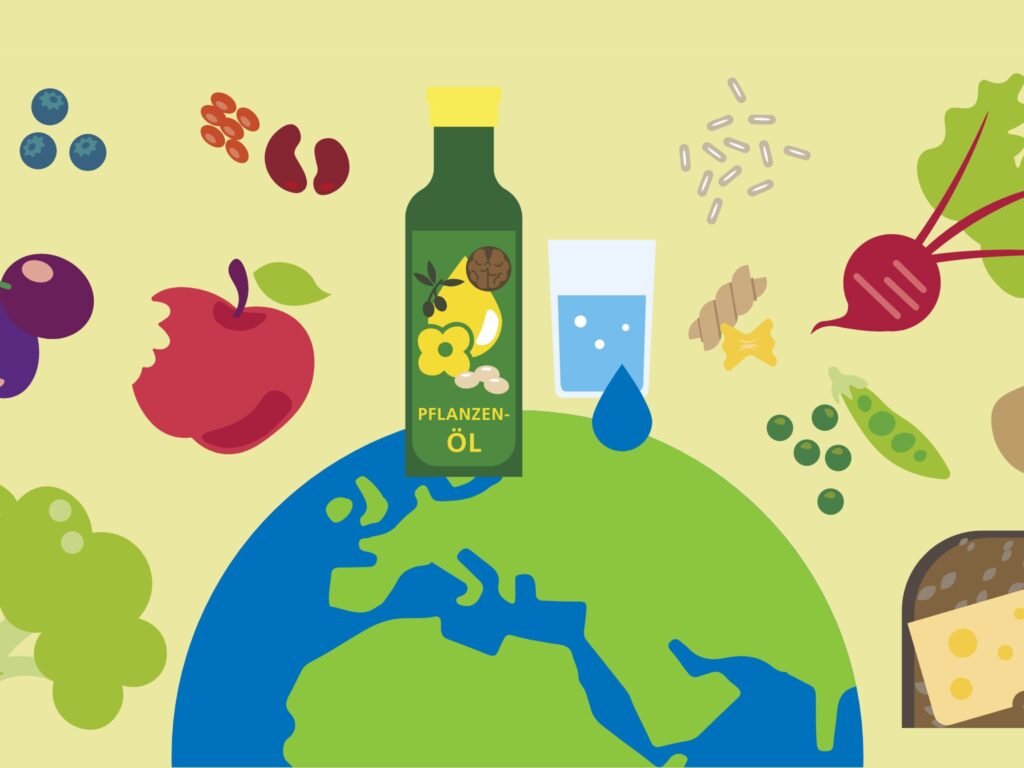4 Minute Read
The German Nutrition Association has reassessed the effects of plant-based foods and changed its official position on veganism, noting that it can be a ‘health-promoting’ diet.
The body responsible for creating Germany’s dietary guidelines, Deutsche Gesellschaft für Ernährung (DGE), says that veganism is more climate-friendly than the standard German diet and constitutes a “health-promoting diet”, after for him to reassess his official position on plant-based foods.
The DGE last published a position paper on plant-based diets in 2021, but said that more than just health is now taken into account when considering sustainable eating patterns. Environmental impact, animal welfare, and social benefits are now part of its revised assessment.
There was also an update on the health aspect – previous position papers looked mainly at nutritional supply, but now, other parameters such as blood lipid levels and risk of diet-related diseases (such as cardiovascular disease) have been included also included.
The evaluation led the DGE to make some new conclusions, reducing its position on vulnerable population groups that eat vegan, supporting the planetary benefits, and supporting the nutritional completeness of a plant-based diet.
The move comes three months after the association updated its dietary guidelines to recommend cutting meat consumption in half, limiting dairy intake, and eating more plant-based foods. He stated that the latter should make up at least 75% of the German diet.
Healthy plant-based diets with appropriate supplementation

The new DGE position states that plant-based diets are a “health-promoting diet” for healthy adults, provided they take a vitamin B12 supplement. He recommends a “balanced, well-planned selection of foods” and an adequate intake of “potentially critical nutrients”, also through supplements if necessary.
One such nutrient is iodine, which is usually obtained from seafood and dairy. “Plant-based milk alternatives are rarely fortified with iodine and contain very little iodine when not fortified. Choosing a plant-based drink fortified with iodine can ensure adequate iodine intake,” says the DGE.
To meet iodine needs at home, the nutrition agency recommends iodized and fluoridated table salt and foods made with it, as well as sea salt mixed with seaweed that contains iodine.
Similarly, vitamin A is also a vital nutrient, whose central active form, retinol, is found exclusively in animal products. Plant-based foods contain similar precursors to provitamin A carotenoids, but much larger amounts are required to convert them to retinol. The most important precursor is beta-carotene, which is found in yellow, orange and deep green leafy vegetables and certain fruits.
“A sufficient supply of vitamin A in a vegan diet is possible, in principle, through the intake of provitamin A carotenoids alone, provided there are no disorders of fat digestion and the enzymes responsible for the conversion,” says the DGE.
Another significant change in society’s position around vulnerable populations. Previously, it did not specifically recommend vegan diets for pregnant women, nursing mothers, infants, children, adolescents and the elderly, based on the availability of limited data.
But now, the DGE says it is neither “for nor against” plant-based diets for vulnerable groups, based on improved but still limited data. “Even if the previous wording ‘Not recommended’ should not be understood as a complete rejection of a well-planned vegan diet, the wording chosen in the new assessment does better justice to the currently available data,” he explains.
Vegan food is better for the climate


The DGE recognizes the planetary gains of a vegan diet, saying it is “more environmentally friendly” than the typical German mixed diet that is heavy on animal products. He cited “the great potential of plant-based foods to reduce greenhouse gas emissions” as a factor.
Meat production alone is responsible for 60% of global food emissions, and generates twice as much CO2e as growing plants. Germans recognize this – meat consumption fell to an all-time high last year, with climate and health cited as the main drivers. It came as a major EU-backed survey showed that 59% of Germans were already eating less meat in 2022 than the previous year – the lowest in the EU.
The country is also the largest market in Europe for plant-based food, thanks to the high percentage of flexitarians (estimated to be between 40-55% of the total population). Retailers have doubled down, with Lidl, Kaufland, Aldi and the Rewe Group (which opened a 100% plant-based store) making vegan meat and dairy at the same price or cheaper than their traditional counterparts. Burger King also announced a similar move.
Meanwhile, the German government allocated €38M in its budget for 2024 to promote alternative protein consumption and transition to plant-based agriculture, as well as opening the Proteins of the Future center. And the country produced 17% more plant-based meat in 2023 than the previous year, and its total value increased by 8.5% to €583M.
“This new position marks the beginning of a new era in nutrition policy in Germany,” said Anna-Lena Klapp, international head of nutrition and health at non-profit ProVeg International. “It takes vegan diets out of the shadows of the policy debate and puts them front and center instead.”
The Nordic nations, Taiwan and Canada have recently realigned their nutritional guidelines to focus more on plant-based foods as well. France is being asked to do the same. “We are delighted that this position has been published and we hope that it will have an impact on similar companies around the world,” said Klapp.

